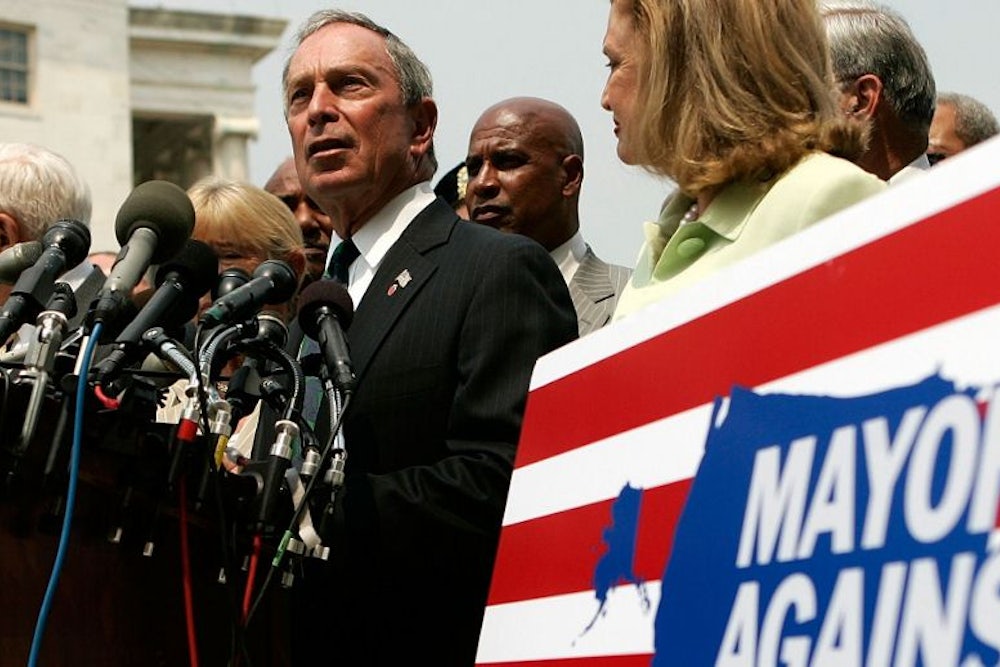It’s not unusual for candidates and interest groups to spend millions of dollars to try to change public opinion. New York City Mayor Michael Bloomberg’s recent $12 million advertising buy is a little less conventional: He’s spending millions to convince voters not to change their minds. The ads, which are running in 13 states during the current Congressional recess, ask viewers to support "comprehensive background checks" on gun purchases, but polls routinely show that approximately 90 percent of voters already do.
If the support of nine out of every 10 Americans isn’t enough to get critical senators on board, then broad public opinion clearly isn’t critical to the passage of universal background checks, the centerpiece of gun-control legislation set to hit the Senate floor after recess. There’s not much room for improvement on those polls numbers, either. So if Bloomberg isn't trying to sway the public or move the polls, what’s he doing? There are several possibilities—none of which are likely to succeed.
The commercials—there are two, targeting both senators from both parties—could seek to change the balance of information reaching senators, since the advertisements ask viewers to tell their senators to vote for gun control. If enough voters did so, and you believe that elected officials are responsive to their constituents, then the strategy might work. But—and this is purely speculation—it's unlikely that a TV ad would inspire enough people to get off of their couches, find their senator's phone number or email, and actually contact him or her.
Perhaps the ads are an attempt to provide political cover for the senators by blanketing the airwaves and drowning out opposing viewpoints. It’s conceivable, for instance, that senators are more concerned by the balance of argument in the public sphere, where the NRA has been the leading voice of opposition, than the balance of support in the polls. If gun-rights advocates are more vocal in their opposition to the bill and than gun-control advocates are in support of it, perhaps critical senators would fear, albeit unjustifiably, the political repercussions of supporting the bill.
But Bloomberg, a notoriously pro-gun control mayor from a notoriously liberal city, isn’t the best actor to provide political cover to Democratic senators from conservative states. Senator Mark Pryor of Arkansas, for instance, said he doesn’t “take gun advice from the mayor of New York,” he “listen[s] to Arkansas.” And NRA has vowed to respond to respond to Bloomberg's blitz with one of its own, thereby canceling many of the benefits that would have come with an uncontested ad campaign. The reticence of some key senators to embrace a largely uncontroversial proposal suggests that the NRA might not even need to spend the money.
